Top 7 Life Lessons You Can Learn from Yoga
The majority of individuals just begin practicing yoga for its physical advantages. However, those that commit to yoga rapidly learn that it will be much more ... read more...than simply an exercise and that it will be much more than just a means to pass the time. Yoga is another activity that will benefit your mental health. Your life may change for the better with yoga. Your eyes will be opened to lessons in life that you might not have known you needed. It will support your personal development and increase your sense of self-awareness. Your mind will grow as a result of doing yoga. You will discover more about both yourself and other people the more you practice on the mat. The significant and deep life lessons from Yoga will resonate even with the non-yogi in your life.
-
Any form of exercise may make you stronger and leaner, but yoga has a unique quality that genuinely enhances your body confidence. Going to yoga class and setting out an hour for yourself is not in the least bit selfish since it is necessary. The secret to fulfillment, happiness and loving others is self-love. Self-love is a lifelong and sometimes difficult road, but once you recognize that financial possessions won't make you happy, you'll have the courage to search within and discover your own calm. The poses are known by titles like "warrior pose" and "goddess pose," which actually feel empowering.
Frank J. Sileo, Ph.D., a psychologist, yogi, and author, claims that yoga has helped him develop self-confidence in his physique. He's not the most flexible yoga practitioner, but that's okay. Instead of focusing on what he couldn't do, he thought about what my body could accomplish. He stopped making fun of his physique for not being like others. As a result of practicing yoga, he has a great deal of respect for his body.
Yoga is about transformation, but it's not about altering yourself because you have a problem that needs to be fixed. It involves changing throughout time since that is what humans are capable of doing. Through yoga, we may turn our sorrow into tranquility. Off the mat, consider life areas you'd like to enhance while developing a mindset of acceptance for where you are with that particular facet of your life right now. Because our minds have a tendency to think in black and white, it might be challenging to hold these two seemingly incompatible thoughts concurrently. However, try to push yourself to think creatively.

Source: suckhoedoisong 
Source: sydnestyle -
Let's be honest. On Day 1, it's likely that you won't be able to perform a handstand. Yoga forces you to embrace your practice as it is right now. You should never push yourself to the point of great discomfort or damage if you want to challenge yourself. You risk getting harmed if you try to push your body to open into a position before it's ready. Warming up and building up to increasingly difficult positions is necessary; some stances take a lifetime. Similar to life, pushing events to occur before they are prepared nearly never advances us toward our objectives.
Pharmacist Erin Pitkethly states, "Yoga has taught me patience as I am occasionally unable to accomplish positions that I have done for a decade owing to an injury. Each week there is a small improvement, and having to wait a month or two to be able to return to a full asana is humbling."
In yoga, we frequently accomplish more if we work more slowly. When we try to force ourselves into an asana (yoga position), our muscles are likely to be stiff and we are probably using the wrong muscle group. This not only increases our risk of injury but also prevents us from strengthening and extending the proper muscles. We may accomplish our goals considerably more quickly if we can take our time and move with conscious awareness. The same goes for life off the mat when we rush through tasks or try to multitask, nothing gets done well, we fall short of our objectives, and we are more likely to make mistakes. But if we slow down and eliminate the unnecessary items, we'll find that we can accomplish more things without as much stress.
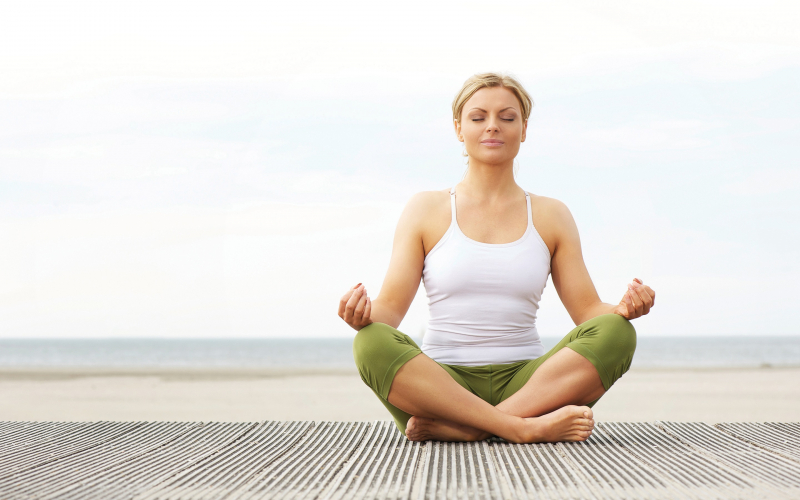
Source: best-wallpaper 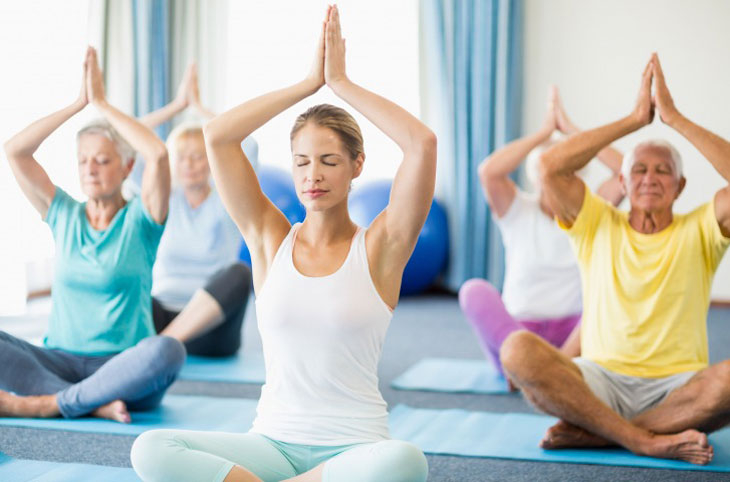
Source: hongngochospital -
This is one of the useful life lessons from Yoga for you. It's easy to compare your performance to everyone else's during your first yoga session. Your arms are screaming under you and your calves are pleading with you to stop as the instructor refers to the downward dog as a "resting posture." It's simple to be harsh on yourself at those times, but yoga may swiftly teach you to stop thinking that way. Brice LaGrand, who started practicing yoga 12 years ago, says it's acceptable if you have feelings of lethargy, exhaustion, overload, or that you're about to pass out. Finding a position difficult at first is normal and anticipated because it is part of the process.
Making a small tweak may completely alter a position as soon as you believe you have it down. There are several modifications for every position that might make it more supportive or difficult. Both yoga positions and life are inherently like this. There is always something new to discover, somewhere new to go and something new to overcome. Never give up on your objectives or goals in life, whether it's learning a new yoga posture. Yoga may help you develop the fortitude, bravery, and inner power to never give up and to believe in yourself. Therefore, for those of you going through difficult circumstances and looking for strength, remember that it is already present inside you All you need is the bravery to draw it out and the will to never give up.

Source: vinmec 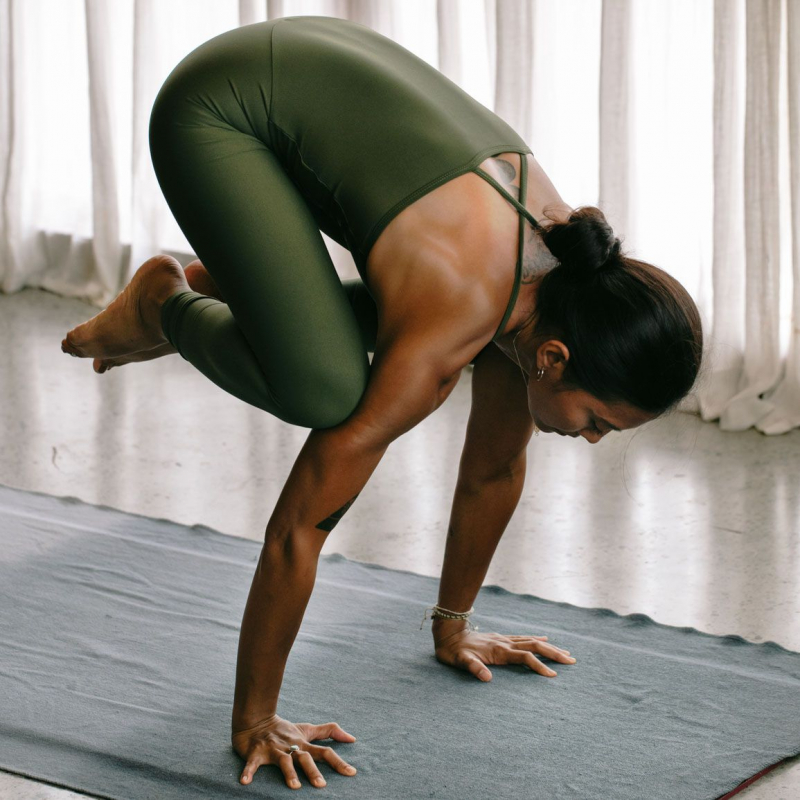
Source: byrdie -
The breath may provide pain relief, help you relax more fully into a posture, and serve as an anchor to assist you to return to the present. During your practice, focusing on the breath as much as you can (and returning your awareness to it when your mind wanders) can help you navigate the more difficult parts of a sequence and appreciate the more calming parts. Off the mat, in everyday life, you can always rely on your breath. It can help you put your problems or to-do list into perspective by serving as a reminder of what is actually essential in life (such as health, presence, and tranquility). Deep breathing also triggers the parasympathetic nervous system, which tells your body to feel calmer. This is especially true when you exhale more slowly than you inhale.
Every position and vinyasa in yoga is guided by breath signals, and each breath directs a movement. Similar to this, when maintaining a difficult posture, the breath serves as a cue to persevere, according to yoga instructor and intuitive coach Julia Kelley. When confronted with a challenging position, many inexperienced yogis would hold their breath (without realizing it). Being in an unpleasant circumstance causes a natural reaction. It takes practice to realize that maintaining your breath won't make the posture any easier. It turns out that finding ways to breathe through discomfort goes beyond the mat. “This has fully overflowed into my life When I notice myself becoming stressed, upset, or angry, I use the breath to guide me back to stillness,” says Kelley.
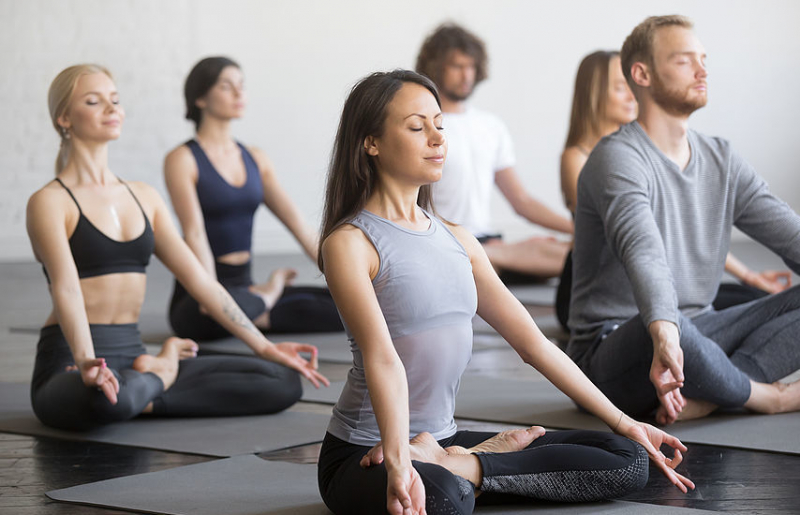
Source: minimed 
Source: babumagazine -
It may be highly harmful to your mental, emotional, and physical health when you stop and think about how much of your day is spent worrying about what will happen next or what has already happened. We start to feel worried, upset and even depressed when we worry about things all the time that we have no control over or ability to alter. To prevent this, live fully in the present now and let go of any additional stressors you do not need. Take each day, hour, and even minute as it comes. You can get there by doing yoga. In yoga, we become conscious of our thoughts, go under the surface of things, and probe our innermost essence. We discover the solutions to what we must let go of in order to begin living here.
Yoga will inspire you to breathe, concentrate on the present, work through the discomfort and accept it while you are in a stretch. You're expected to remain calm and face the pain head-on rather than panicking and avoiding it. There are so many challenging circumstances in life that you must overcome. You ought to be able to attack the issues head-on. The suffering won't last forever, and it will soon end. You feel powerful and successful once you've resolved whatever problems you had with yoga positions. Life will be the same way. This is also one of the significant and deep life lessons from Yoga for you.
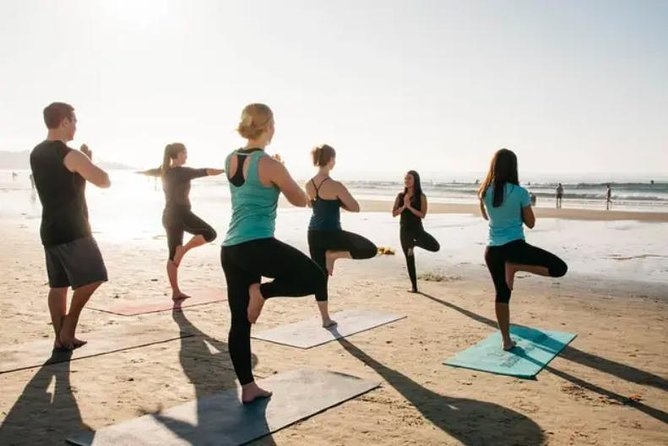
Source: viator 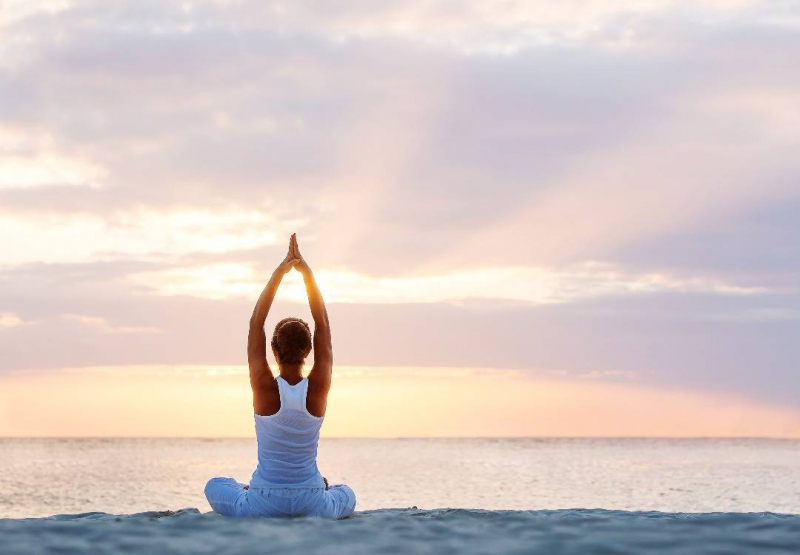
Source: harbourhotels -
You'll discover via yoga that taking care of your body and spirit is crucial because you are valuable. You only have one body, therefore you need to respect it by paying attention to it. Your body will communicate to you when it is worn out, has been overworked, or need further care. In yoga, when this occurs, we halt and honor our body's requests rather than push them too far. You'll hear the same things from your head. Recognize when it's time to practice more self-care and refresh your mind and soul.
Nothing ever goes according to plan. Riding the tide of life will allow you to see where it takes you rather than being agitated and disappointed. There will be variations among yoga sessions. On some days, you could feel terrific and achieve achievement, but on other days, you might feel off and commit more errors. Your yoga instructor's role in a class is to lead and provide advice. No matter how many teacher trainings they have successfully finished, he or she does not reside in your body and does not share your emotions. You are the only person who can truly make wise judgments for yourself because of this. You can never go wrong if you trust your judgment and act on what seems correct.
Whatever the case, yoga teaches you to pay attention to your body and relish the experience rather than getting upset. Life ought to operate similarly. There will be easy days and days that may feel like a roller coaster. Hold on and take the day as it comes. Always find something to be grateful for.
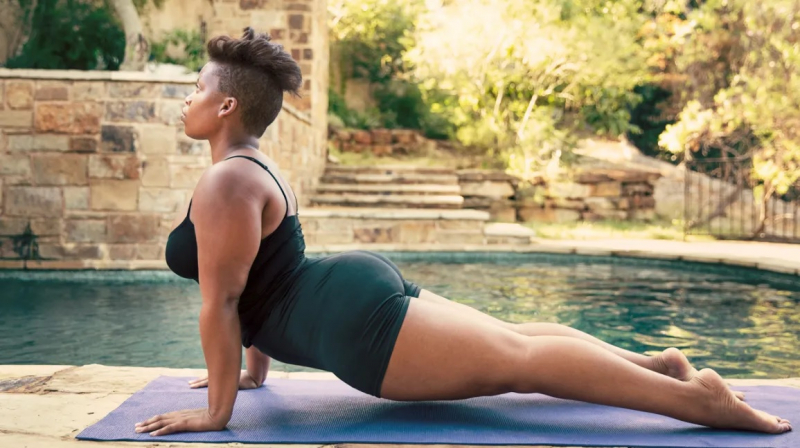
Source: healthline 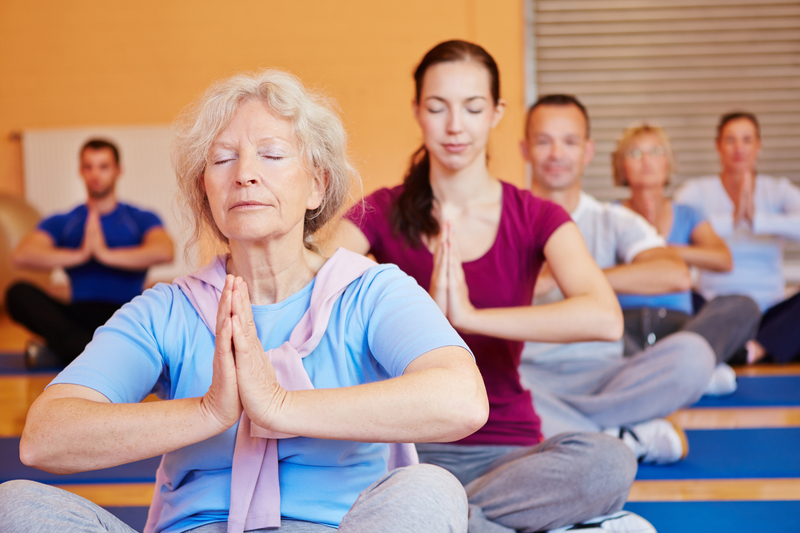
Source: okiaglobal -
The things you fail at can sometimes teach you the most about life. We are expected to always do well in today's society. Yoga teaches us that it's alright to make mistakes. Nobody always gets things properly on the first try. Some of the challenging postures require a lot of effort, even for the most seasoned yogi. Yoga encourages you to accept your failures and draw lessons from them. If you are unable to complete a position, you might try to figure out why and keep trying until you succeed. You may use this in your daily life as well. Continue to push yourself rather than give up when you become discouraged. You can improve thanks to such failures.
When you're preoccupied with mastering your breathing and posture, it's difficult to think about jobs or expenses for an extended period of time. If traditional meditation doesn't work for you, practicing yoga is a terrific approach to quiet your mind. You may gradually become more deliberate about focusing just on your yoga practice. According to Rebecca Koehn, editor of Yogapedia and a yogi for 10 years, "Yoga has been a big aid to my mental health as it has helped me create a practice of monitoring my thoughts. I’ve dealt with anxiety issues since I was in high school … but yoga has shown me that I have the ability to rein in my rampaging thoughts."
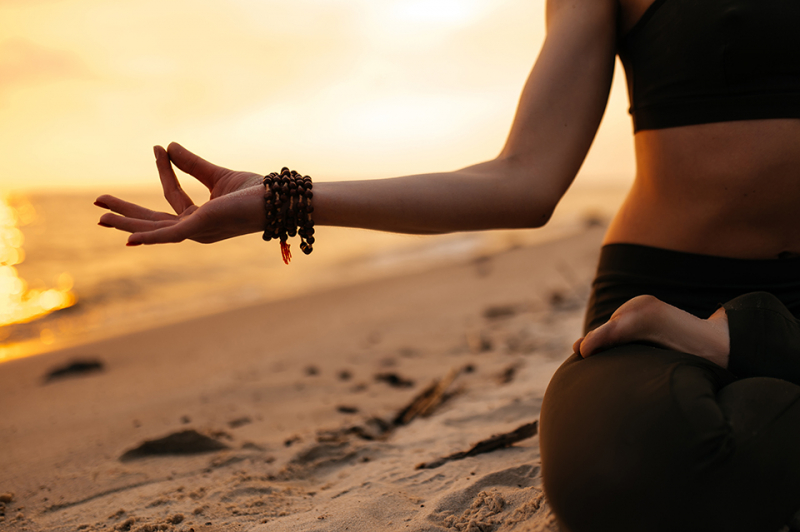
Source: beachyogasocal 
Source: lana-thai-villa




























